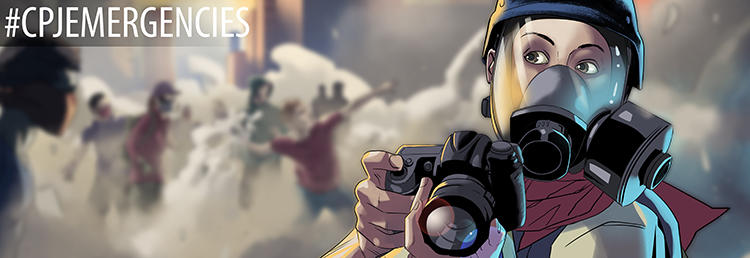Solo work is becoming more common, especially for broadcast and video journalists. However, working alone can make journalists vulnerable to physical assault. For assignments in locations such as neighborhoods with high crime rates, protests, or remote areas, it is advisable that journalists do not work alone.
Here are some recommendations to mitigate risk when on assignment alone.
When preparing for an assignment:
- Conduct a thorough risk assessment, including any dangers you may face and what emergency procedures are in place. List the risks and how you plan to respond to them. Ensure a manager, colleague, or friend views the risk assessment
- If you have concerns about working alone, discuss them with your manager and your team
- When carrying out your risk assessment, identify the likelihood of violence or assault. If it is high, consider having support with you or an individual on-hand who can respond quickly
- Make sure trusted contacts know where you are and where you are going to be. Consider sharing your location with them through your mobile device. If using location sharing, take your digital security into account and turn off location sharing when the assignment is complete
- Do not carry unnecessary equipment, particularly if it is likely to make you a target for criminals. If possible, do not advertise your presence in advance, particularly to third parties
- Pay attention to your digital security and limit posting your whereabouts or other personal information on social media
- When assessing the work environment, factor in any health conditions you may have and assess whether you are physically fit to work in that area
- Consider your mental health. It’s common to struggle when trying to deal with a serious incident. Seeking support from peers or counselling early on can help
When out in the field:
- Driving alone in remote places is rarely a good idea. Accidents or even a simple breakdown can leave you vulnerable and less able to respond to any threats or risk. If unavoidable, plan the route and stick to it; call in any enforced changes; drive defensively; and make sure you are fully equipped for any possible eventualities
- If working away from colleagues at a third party premises, such as the home of a source or in a remote location, ensure arrangements are in place to keep in contact and check in with colleagues
- Establish a check-in protocol. This should include knowledge of where you are, your planned routes, and what time you are expected to be back. It should make clear how contact should be maintained and how the alarm should be raised if you get into trouble or need help. Check-ins should be more frequent when working in a higher-risk location, or in a third party premises. Establish a plan of action for if you fail to check-in
- When working in someone else’s home or office, set an agreed end time to the meeting and stick to it. When entering the premises, take note of how you would evacuate if necessary. It is important to check how doors open and close to ensure a swift exit. If you are uncomfortable, leave and inform your support as soon as it is safe to do so
- Ensure your phone is fully charged and has reception coverage, and make regular contact with someone, whether it’s your editor, a colleague, or a trusted contact
- Report any violent or injury incident as soon as possible to your organization and, if appropriate, the authorities
